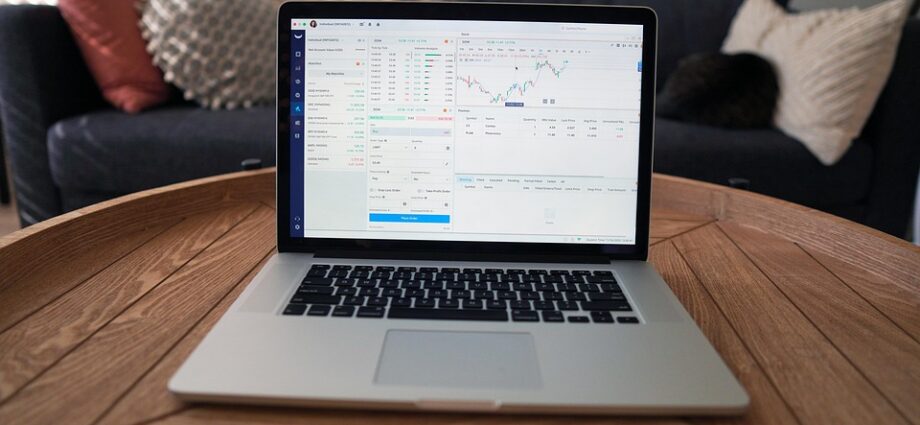The Rise of AI in Stock Market Trading: Revolutionizing Investment Strategies
The stock market has long been a realm of human intuition, analysis, and strategic decision-making. However, with the advent of artificial intelligence (AI), the landscape of investment strategies is undergoing a profound transformation. The integration of AI into stock market trading is not merely a trend; it is a revolution that is reshaping how investors approach the complexities of market dynamics.
Understanding AI in Stock Trading
AI encompasses a range of technologies, including machine learning, natural language processing, and neural networks, which enable systems to analyze vast amounts of data, identify patterns, and make predictions. In stock trading, these technologies are employed to process historical data, current market conditions, and even social media sentiment to forecast stock price movements and optimize trading strategies.
Enhanced Data Analysis
One of the most significant advantages of AI in stock market trading is its ability to analyze massive datasets at speeds far beyond human capability. Traditional investment strategies often rely on fundamental and technical analysis, which can be time-consuming and limited by the analyst’s cognitive biases. AI algorithms, however, can sift through millions of data points in real time, identifying trends and correlations that human analysts might overlook.
For instance, machine learning models can analyze historical price movements, trading volumes, and macroeconomic indicators to develop predictive models. These models are constantly updated as new data becomes available, allowing traders to adjust their strategies dynamically.
Algorithmic Trading
Algorithmic trading, powered by AI, has become a dominant force in the financial markets. These algorithms can execute trades at lightning speed, capitalizing on minute price discrepancies and market inefficiencies that would be impossible for human traders to exploit. High-frequency trading firms utilize AI to develop sophisticated algorithms that can process information and execute trades within milliseconds, thereby maximizing profits.
Moreover, AI-driven trading systems can operate around the clock, analyzing market conditions and executing trades even when human traders are offline. This capability not only increases efficiency but also enhances the potential for profit generation.
Sentiment Analysis and Market Forecasting
AI’s ability to analyze sentiment has also transformed the way traders assess market conditions. By utilizing natural language processing, AI systems can evaluate news articles, social media posts, and financial reports to gauge public sentiment towards specific stocks or the market as a whole. This sentiment analysis can provide valuable insights that inform trading decisions.
For example, if AI detects a surge in positive sentiment surrounding a particular company due to a favorable earnings report, traders can react quickly to capitalize on potential price increases. Conversely, negative sentiment can serve as an early warning signal for potential downturns.
Risk Management and Portfolio Optimization
AI is not only beneficial for identifying trading opportunities but also plays a crucial role in risk management and portfolio optimization. Machine learning algorithms can assess the risk profile of various assets, helping investors create diversified portfolios that align with their risk tolerance and investment goals.
By analyzing historical performance, volatility, and correlations between assets, AI can suggest optimal asset allocations that minimize risk while maximizing returns. This data-driven approach enables investors to make more informed decisions, reducing the likelihood of emotional trading mistakes.
Challenges and Ethical Considerations
Despite the advantages of AI in stock market trading, there are challenges and ethical considerations to address. The reliance on algorithms raises questions about transparency and accountability. When trades are executed based on complex algorithms, it can be difficult for investors to understand the rationale behind specific decisions.
Additionally, the market’s increasing reliance on AI could lead to systemic risks. If many traders use similar algorithms, it could result in herd behavior, exacerbating market volatility. Regulatory bodies are beginning to scrutinize AI trading practices to ensure fair and transparent markets.
The Future of AI in Investing
As AI technology continues to evolve, its influence on stock market trading is expected to grow. The ability to process vast amounts of data, adapt to changing market conditions, and learn from experience positions AI as a powerful ally for investors.
In the coming years, we may witness further advancements in AI-driven trading strategies, including the integration of predictive analytics and more sophisticated risk assessment tools. While human intuition and experience will always hold value, the synergy between AI and human traders is likely to define the future of investing.
In conclusion, the rise of AI in stock market trading represents a paradigm shift in investment strategies. By leveraging the power of data and advanced algorithms, investors can enhance their decision-making processes, optimize their portfolios, and ultimately achieve better financial outcomes. As we embrace this technological revolution, the stock market may never look the same again.
